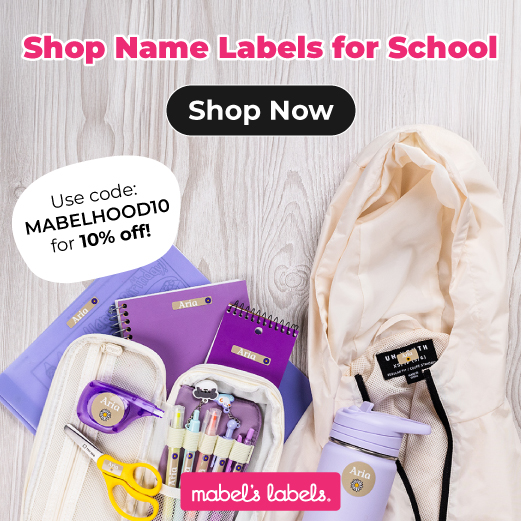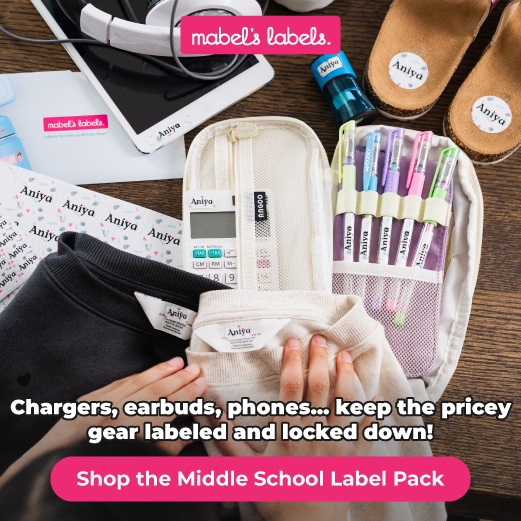There’s no shame in being a hands-on parent. But somewhere between preschool pick-up and middle school lockers, a lot of us forgot to put down the metaphorical bubble wrap.
Back in the day (sorrym but here comes the nostalgia), 12-year-olds were babysitting their siblings, cooking Kraft Dinner solo, and walking home from school without tracking apps. Today, many middle schoolers can’t find their own soccer cleats without texting mom. So, what gives?
It’s Not Just the Parents
Let’s be fair: the world has changed. School pressure has ramped up. Extracurriculars are intense. Social media is a minefield. And we’re all parenting in an age of what-if anxiety, where independence sometimes feels like recklessness.
But experts say we may be swinging too far in the other direction. In fact, research shows that overparenting can hurt kids’ mental health, leading to lower resilience, less confidence, and even higher levels of anxiety and depression.
So, how do we find the balance?
What Middle Schoolers Are Actually Very Capable Of:
Let’s look at the facts. By ages 11–14, most tweens and young teens are entering Piaget’s “formal operational stage” of cognitive development. This means they can:
- Think abstractly
- Plan ahead (sort of)
- Understand consequences
- Consider other people’s perspectives
Of course, their executive functioning skills (like time management, emotional regulation, and impulse control) are still a work in progress. The prefrontal cortex, which helps with those exact tasks, won’t fully mature until around age 25 (yikes, that explains a lot about the college years)
So, can they organize their science project? Yes. Will they remember to bring it to school without reminders? Maybe not.
That’s why this list isn’t about cutting them loose—it’s about recognizing what they can handle, and nudging them gently (but firmly) in that direction.
Sometimes, Letting Them Fail Is the Best Lesson
A friend once told me her seventh grader forgot his homework project at home- the model, the whole thing. She debated racing back with it. But instead, she took a breath and stayed put. He had worked hard, and yes, it was brutal watching him realize the mistake. But he faced his teacher, took the hit, and the next time? He triple-checked his backpack the night before and set an alarm to remind himself in the morning.
That sting? It worked better than a thousand reminders.
I’ve heard endless stories of parents ordering DoorDash for kids who have forgotten their lunch. It’s so tempting to swoop in before our kids stumble. We remind, rescue, and smooth out every bump because we can. Will they be hungry if they forget their lunch? Yes. Is one skipped lunch the end of the world? Absolutely not, it’s just a natural consequence.
Natural consequences—especially in safe, low-stakes situations—are some of the most powerful teachers they’ll ever have. Research backs this up: kids who experience manageable failure are more likely to develop resilience, responsibility, and internal motivation.
The goal isn’t to let them crash and burn. It’s to let them feel discomfort when it’s still safe, and to let them learn from it while they still have our support. Shielding them from every consequence might keep things smooth in the moment—but it can rob them of the confidence that only comes from picking themselves back up.
15 Things Middle Schoolers Should Be Doing on Their Own:
1. Packing Their Own Lunch
It’s not about gourmet meals. It’s about basic self-sufficiency. Let them toss a sandwich, fruit, and a snack into their lunch bag. Even better? Involve them in grocery planning so they don’t default to Goldfish and granola bars all week. They may need the reminder (or two) to bring said lunch.
2. Waking Up Without a Human Alarm Clock
Middle schoolers need structure, but that doesn’t mean dragging them out of bed every morning like it’s your job. Buy an alarm clock (yes, a real one!) and make getting up on time their responsibility.
3. Communicating With Teachers—Directly
Whether it’s asking about a late assignment or navigating a conflict, middle school is the time to build communication skills. Helicoptering in with a parent email at the first hiccup sends the wrong message: you can’t handle this. They can, and they should. Communicating with the teacher is essential, and builds a whole load of skills they’ll need in life.
Practice with them before sending them in solo, keep it simple, “What do you want to say to your teacher?” is a great place to start.
4. Keeping Track of Their Own Schedule
If your kid can memorize Minecraft stats, they can learn what time band practice starts. Paper planners, shared family calendars, and phone reminders all help—but the goal is for them to take ownership.
5. Making Simple Meals Without Supervision
We’re not suggesting a full roast chicken. But they should be able to handle:
- Scrambled eggs
- Pasta with butter and cheese
- A smoothie
- Grilled cheese or quesadillas
Food = independence. Plus, it gives them a huge confidence boost. They can help to prep family meals, and this will help prepare them for when they need to cook for themselves.
6. Doing Their Own Laundry (or at Least Some of It)
Start small: gym clothes, uniforms, or weekend outfits. Show them the basics—sorting colors, not overloading the machine, what goes in the dryer—and then let them try. (They should start at a young age to gather everything they need cleaned, but now’s the time to start doing it too)
7. Navigating Social Drama Without a Play-by-Play
Not every friend conflict requires parental mediation. Learning to self-regulate, apologize, or set boundaries is key for middle schoolers. You can still coach from the sidelines—but don’t always jump in to “fix.”
8. Walking or Biking to School—When It’s Safe
This one depends on your location and comfort level. But if the route is safe and age-appropriate, walking or biking fosters independence, routine, and even better exercise and sleep!
9. Carrying Their Own Backpack and Remembering What’s in It
You shouldn’t be racing home with their forgotten binder or dropping off soccer shoes during math. Make a “check before you leave” list, and slowly hand over the responsibility. Remember the natural consequences we talked about.
10. Booking Their Own Appointments (With Help)
Whether it’s asking the secretary to rebook an orthodontist appointment or emailing a music teacher about a missed lesson, these tiny tasks build real-world skills.
You can still assist (with scripts or reminders), but let them take the lead when possible.
11. Taking Care of Their Stuff
Water bottles. Hoodies. Chargers. They lose it, they find it—or they deal with the consequences. The more we rescue, the less they learn. (Okay, obviously the easiest way to help with this is the Middle School Label Pack)
12. Handling a Few Chores Without Being Asked (Repeatedly)
They won’t offer, but they’re old enough to:
- Empty the dishwasher
- Take out the garbage
- Clean their room
- Change their bed sheets (eventually…)
Pro tip: Tie chores to privileges, not punishments. This helps frame them as part of being a household member—not a punishment for being a kid.
13. Getting Themselves Ready for School or Activities
Yes, mornings are chaotic. But they should know what they need for gym, music, lunch, and after-school clubs. Try a whiteboard checklist or labeled bins if executive function is a struggle, and a family calendar.
14. Using Technology with Boundaries
By middle school, most kids have access to devices—and they need to start learning how to self-regulate. This means:
- Following screen time limits
- Turning devices off at night
- Not texting during dinner
- (Occasionally) remembering to charge their Chromebook etc.
15. Knowing Basic First Aid & Safety Skills
Middle schoolers can learn:
- What to do if someone gets hurt
- When to call 911
- Basic cooking safety
You’re not turning them into paramedics. But they should know how to get and use a Band-Aid without asking.
But Wait—They Still Need Help With This
Even with growing independence, middle schoolers still need structure, coaching, and (lots of) reminders. Here are a few things most still rely on us for, and it’s important to use this time to teach them the skills they’ll need to manage all this on their own one day:
- Emotional regulation (especially when hormones hit hard)
- Planning long-term projects (breaking it into steps)
- Managing anxiety, sleep schedules, and social overwhelm
- Staying organized (especially kids with ADHD or learning differences)
- Regulating screen time
- Limiting procrastination and boosting motivation
And yes, they still need hugs, snacks, pep talks, and rides. Independence isn’t about pulling away—it’s about building them up!
Confidence Starts With Letting Go (Just a Bit)
We all want to raise kind, competent, resilient humans. But resilience is built, not gifted. And part of building it means letting our middle schoolers stumble, try again, and realize they’re capable.
So maybe next week, you don’t pack their lunch. Or you set a reminder for them to email their teacher. Or you stay on the couch when they forget their water bottle (again).
They might complain. But quietly, they’re learning: I’ve got this.


